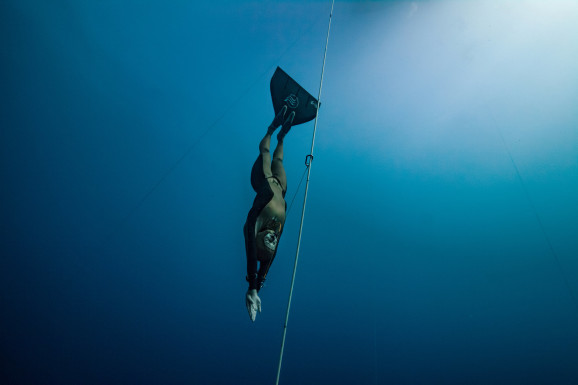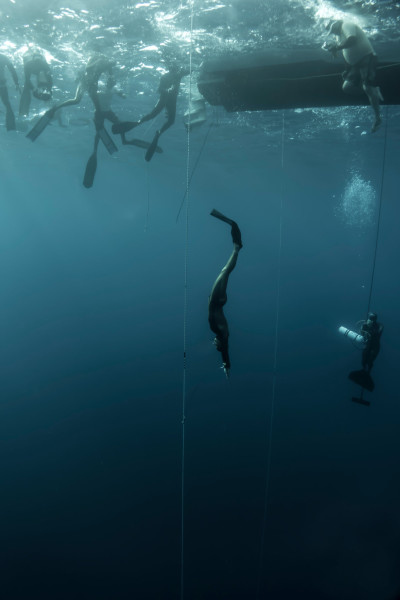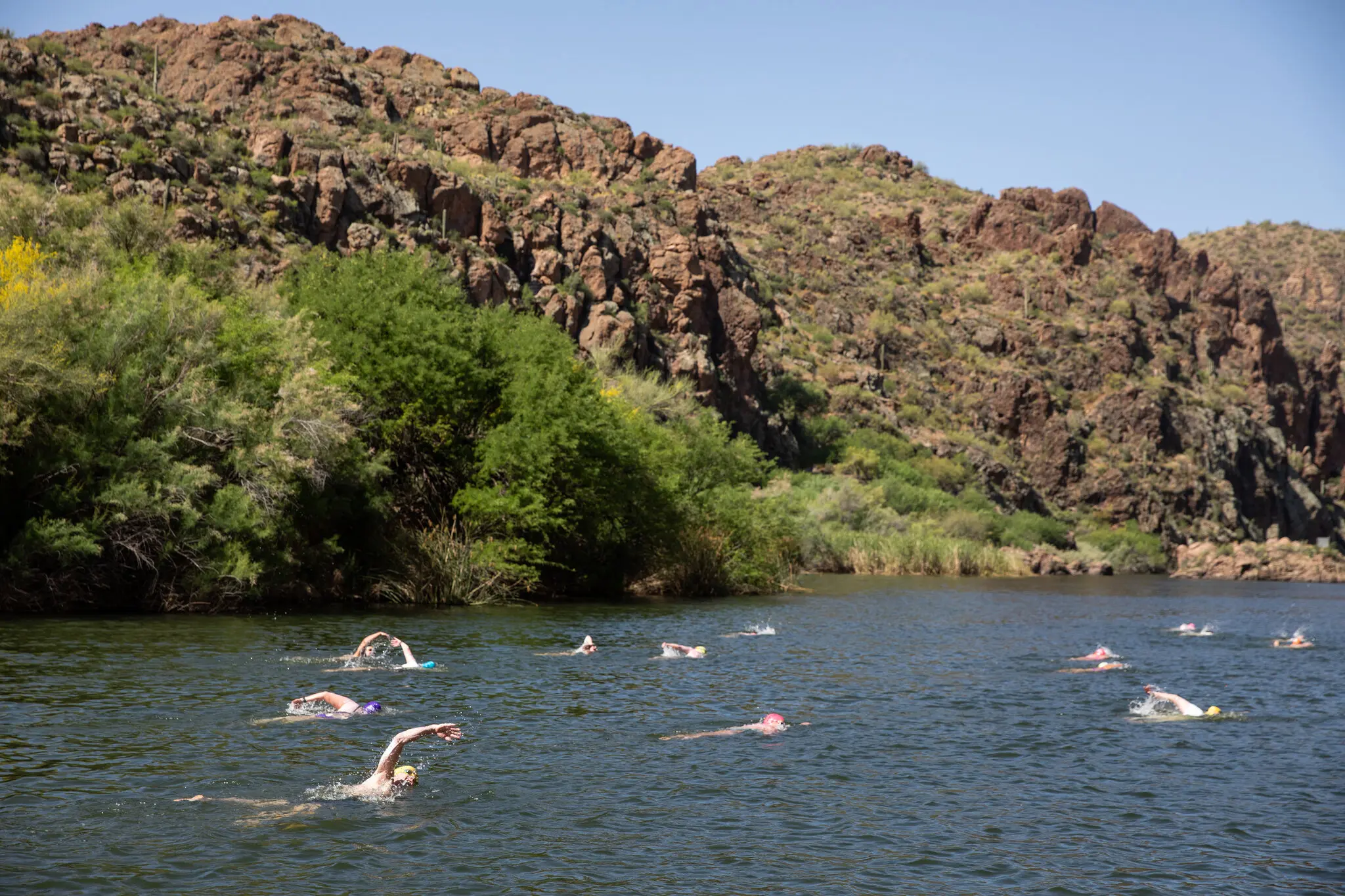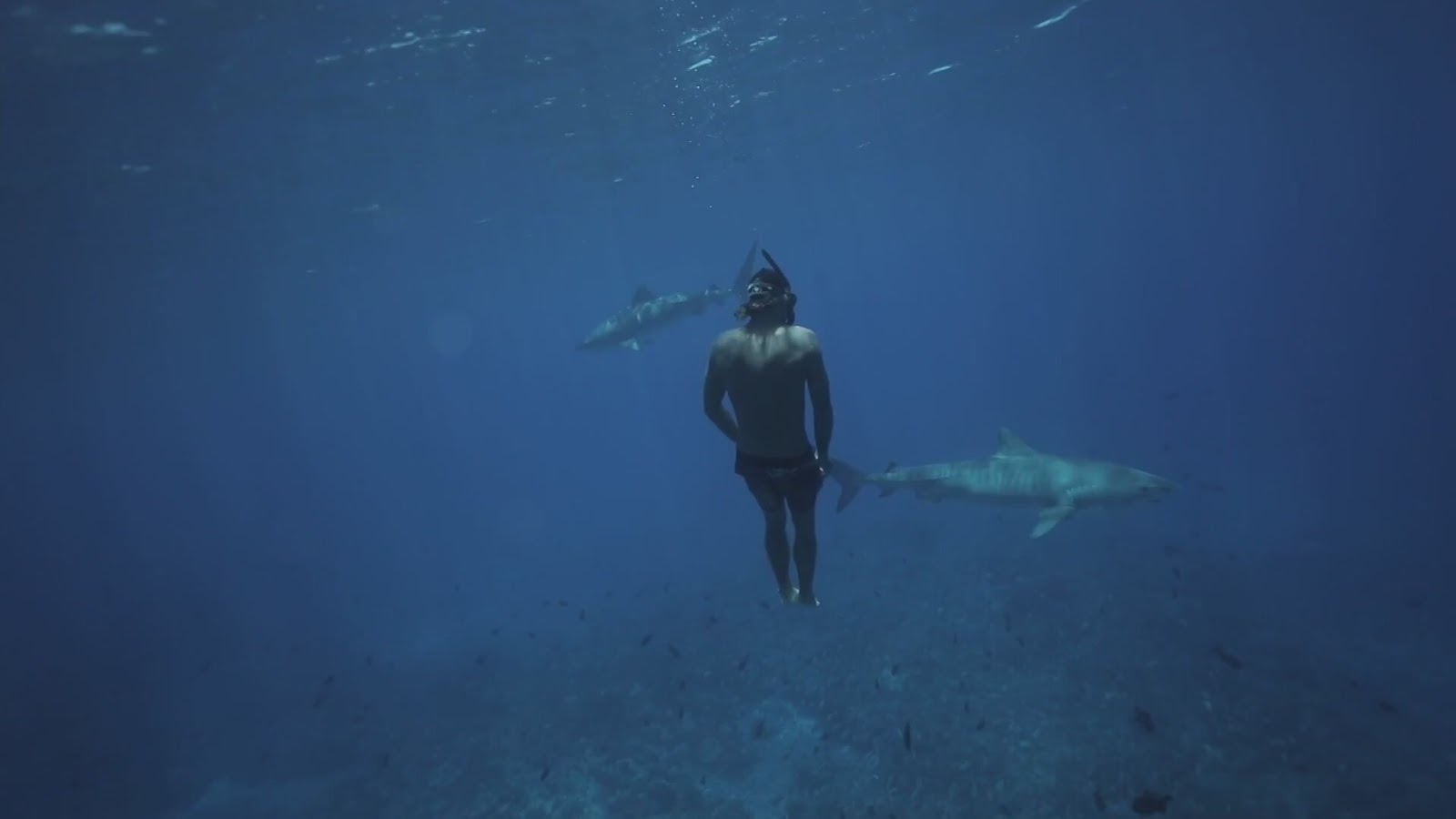Free Diver Natalia Molchanova Descends for Fun, Then Vanishes

Natalia Molchanova, widely regarded as the greatest free diver in history, wore her favorite purple wet suit Sunday on a chartered boat off the coast of Formentera, an island near Ibiza. Only 1.5 millimeters thick, the wet suit was low buoyancy, designed specifically for divers like her who want to go deep on a single breath. It was a Molchanova, the brand she started with her son, Alexey Molchanov.
With clear skies and a light breeze on the Balearic Sea, off the eastern coast of Spain, Ms. Molchanova attached a neck weight — a pound or two, at most — that would help her descend. Then she dipped into the water to begin what divers call breathing up. A lower heart rate enables divers to use precious oxygen more efficiently. To relax deeply, Ms. Molchanova would inhale for a few seconds, then exhale twice as long and twice as deep.
Those may have been among Ms. Molchanova’s last breaths. She then proceeded to attempt a recreational dive to a depth that was modest for her, and she never resurfaced. After two days of intense search efforts, Alexey Molchanov said Tuesday afternoon that his mother, 53, was not expected to be found alive.
“She was a free-diving superstar, and we all thought nothing could harm her,” said Kimmo Lahtinen, the president of the global federation for free diving, known as AIDA. “Nothing could happen to her, but, you know, we are playing with the ocean, and when you play with the ocean, you know who is the strongest one.”
Ms. Molchanova, a Russian who holds dozens of world records, was not aiming for the record books Sunday. Rather, she and three fellow divers were taking a few dives for fun, her son said. Ms. Molchanova’s record dive without the use of fins is 71 meters (about 233 feet), set in May in Dahab, Egypt. She set the record along a line used to measure depth and to tether the diver in case of emergency.
There was no such line Sunday, two miles west of La Savina at Poniente de es Freus, a part of the sea where currents at the surface and at depth can be unpredictable and powerful. Was she swept away by a strong current? Did she black out? Was there a shark? Did she hit her head on something?
When Ms. Molchanova failed to surface after her dive, her fellow divers conducted a brief search before calling for help via radio. A flotilla of private boats and the local Coast Guard deployed. Air support was added from a Helimar 213 chopper, and the search lasted until dark. It resumed Monday morning.
Ms. Molchanova remained missing Tuesday, when the search expanded to include the use of an underwater robot capable of searching a radius of nearly 500 meters at depth.

The water temperature in the area was about 79 degrees, though a layer of water known as a thermocline can be 10 to 15 degrees cooler about 65 feet below the surface. Such a variance can shock a diver’s system.
“The world has lost its greatest free diver,” said Will Trubridge, a 15-time world-record holder in the sport. “I don’t think anybody would dispute that.”
Ms. Molchanova was first a competitive swimmer in Russia before leaving the sport to have a family. After picking up free diving about 20 years later, she went on to set 41 world records and claim 23 world championship titles.
Free diving includes three pool disciplines: static apnea, in which a diver goes face down in a pool and floats holding his or her breath as long as possible (Ms. Molchanova’s world record is 9 minutes 2 seconds); dynamic, in which a diver swims as many pool lengths as possible underwater on one breath with a monofin (her record is 237 meters, or about 778 feet); and dynamic no fins, in which a diver does the same thing using a breaststroke (her record is 182 meters, or almost 600 feet).
For Ms. Molchanova and Mr. Molchanov, who is also a competitive diver, the pool has always been a mere training ground. They prefer to go deep. “Compared to the ocean,” she once said, “the pool is like running on a treadmill versus running in the forest.”

There are three depth disciplines in competitive free diving. In constant weight, a diver swims as deeply as possible on one breath with a monofin. Any weight he or she chooses to wear on the way down, he or she must carry back to the surface. Ms. Molchanova became the only woman in the sport’s history to break the mythic 100-meter barrier, at the world championships in Kalamata, Greece, in 2013. The same year, her son set a men’s record in the same discipline with a dive to 128 meters, or almost 420 feet.
Ms. Molchanova also holds the no-fins record and the record for free immersion, in which a diver pulls along a line to depth and back again to the surface. Her record is 91 meters, nearly 100 yards.
“Free diving is not only sport, it’s a way to understand who we are,” Ms. Molchanova said in an interview last year. “When we go down, if we don’t think, we understand we are whole. We are one with world. When we think, we are separate. On surface, it is natural to think and we have many information inside. We need to reset sometimes. Free diving helps do that.”
Ms. Molchanova has been on the faculty of Moscow’s Russian State University of Physical Education, Sport, Youth and Tourism. She has run its free-diving program with Mr. Molchanov. She has written instructional manuals and a volume of poetry, and commuted around Moscow on a kick scooter.
“She is a force, and having even gotten close to what she’s done was hugely gratifying and a source of pride, and ultimately she’s the one to learn from,” said the American diver Ashley Chapman, one of the few to break one of Ms. Molchanova’s records. She did it in the Cayman Islands in 2012 with a dive to 67 meters. Within 24 hours, Ms. Molchanova had reclaimed the record — with a dive to 68 meters, on her 50th birthday.
“I’d planned to do some studying with Natalia, directly,” Ms. Chapman said. “She was a wealth of knowledge and was willing to share it, and now she’s gone, and that’s really sad for the sport.”
If Ms. Molchanova’s body is not recovered, no one will ever know for sure what happened underwater. By Tuesday night, her son had accepted the likelihood that much would remain unknown.
“It seems she’ll stay in the sea,” he said. “I think she would like that.”
Related articles
Contributor To
















Subscribe to my newsletter
Sign up for occasional updates on new stories, book releases, and behind-the-scenes writing insights - straight from Adam. No noise, just good writing.




